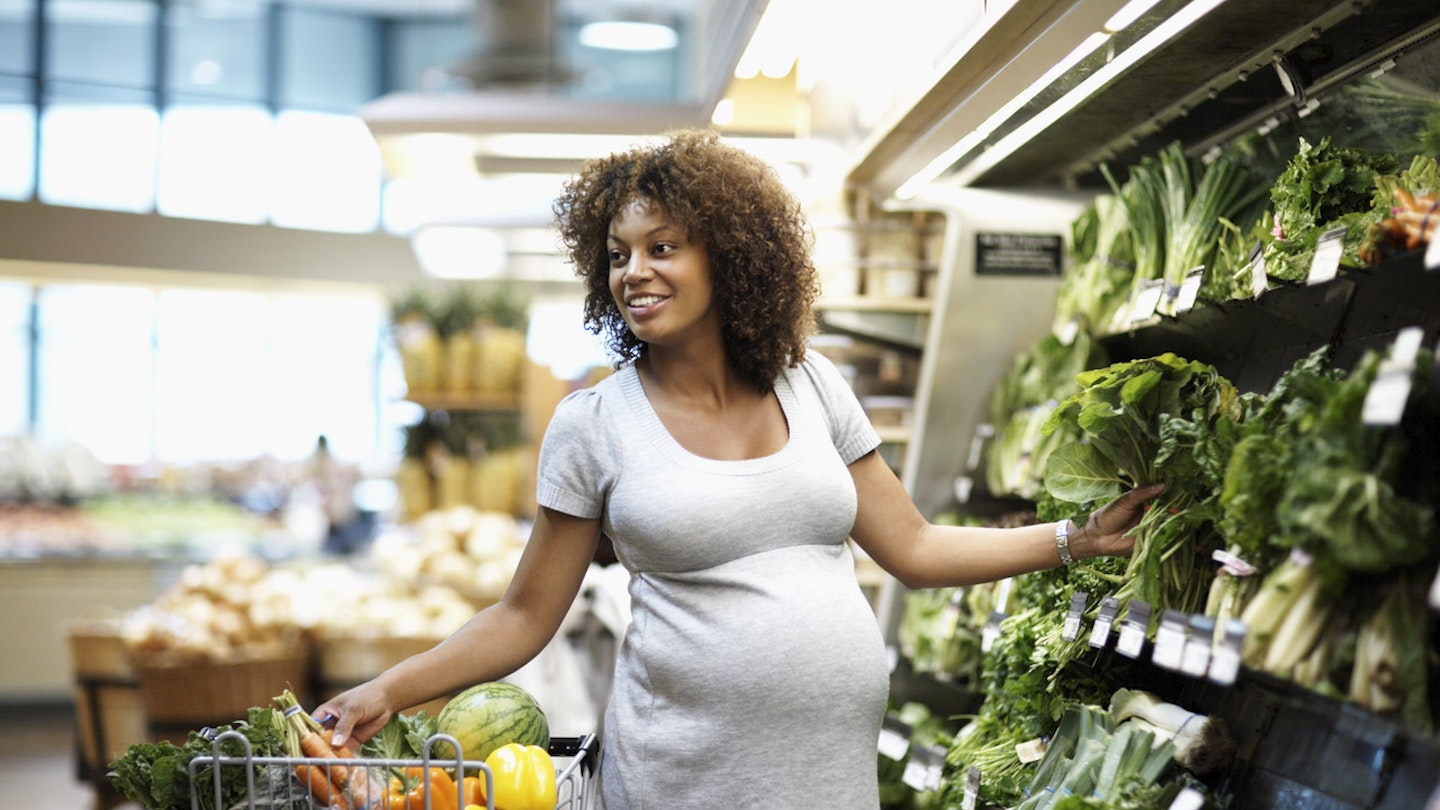Meat may be off the menu, but it’s still possible to get all the nutrients you and your baby need
It’s perfectly safe to continue your vegetarian diet while pregnant (even if it means overcoming a bizarre craving for a juicy steak), just as long as you have a balanced diet. ‘A well-planned vegetarian diet can provide for the health of both mother and baby during pregnancy,’ says Jen Elford, Head of Research and Information Services at the Vegetarian Society. ‘Studies have found that the birth weights of babies born to well-nourished vegetarian mothers are similar to infants born to non-vegetarians.’
Pump up your protein
It’s important that you get plenty of protein during your pregnancy – it helps your baby’s muscles and tissues develop and encourages growth. Luckily, there’s plenty of vegetarian sources of protein-rich foods. ‘Guidelines suggest a pregnant woman needs an extra 6g of protein a day,’ says Jen. ‘Lentils, beans, nuts, eggs and meat alternatives such as tofu and Quorn can help meet increased needs.’
Boosting your iron intake
While red meat is probably one of the best sources of iron, being vegetarian doesn’t have to mean becoming iron deficient. Iron is needed during pregnancy as your body produces more blood to help deliver nutrients through the placenta to your baby. ‘Iron rich foods include leafy greens such as spinach or kale, dried fruits, wholegrain cereals and nuts,’ says Jen. ‘However, it’s also important that you eat foods rich in vitamin C, which is needed to absorb iron. Best sources are vegetables and citrus fruits.’
Fulfil your B vitamin needs
A range of B vitamins are needed during pregnancy. Folate is important during pregnancy to ensure your baby’s spinal cord develops properly and to help prevent spina bifida (link). ‘A varied, colourful diet of fruit and vegetables will be naturally abundant in folate,’ says Jen. ‘Good vegetarian sources include fortified breakfast cereals, wheatgerm bread and spinach.’ However, women who are trying to conceive should take a 400mcg supplement of folic acid every day from before you start trying for a baby up until your twelfth week of pregnancy.
Vitamin B12 is also important because it’s needed for the growth and development of your baby. If you eat eggs and dairy products, you should be able to get enough vitamin B12. If you’re following a vegan diet during pregnancy [link], you can get it from fortified soya milk, yeast extracts and some veggie burger mixes.
Building a baby brain
Studies have shown that a diet that’s rich in omega-3 essential fatty acids is key for your baby’s brain and eye development. ‘Walnuts, leafy green vegetables and flax oil produced from hulled seeds can help meet a daily intake of 2-3g per day,’ says Jen. ‘Avoid ground or whole flaxseed as the lignans in the seed coat can affect hormones during pregnancy.’ Use olive oil and rapeseed oil instead of sunflower oil to keep your omega 6:3 ratio balanced.
Should I take a supplement in pregnancy?
While a healthy vegetarian diet should meet most of your nutritional needs, the Department of Health does recommend that all pregnant women take a vitamin D supplement (10mcg).
'Essential for supporting your baby’s bone development, vitamin D is found in eggs, cheese and fortified products such as breakfast cereals and soya milk,’ says Jen. ‘But the main source is through safe exposure to the sun and because we live in a generally less than sunny climate the Department of Health recommends that all UK pregnant women take a daily supplement of 10mcg of vitamin D.’
What are your favourite vegetarian dishes and foods you’ve enjoyed during pregnancy? Let us know in the comment box below.
